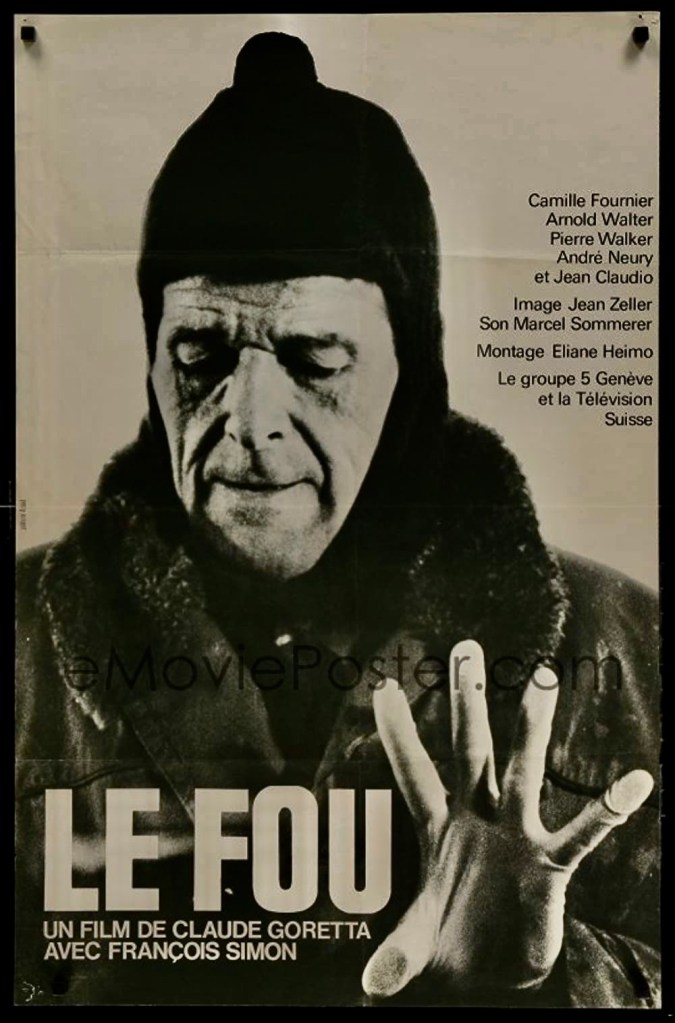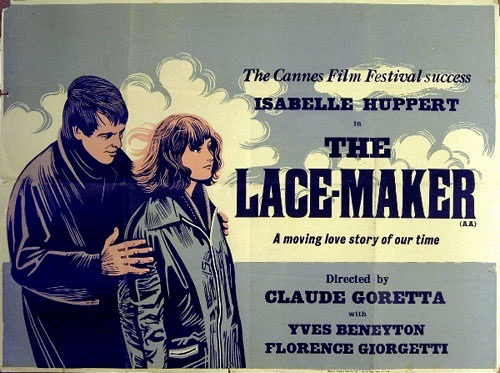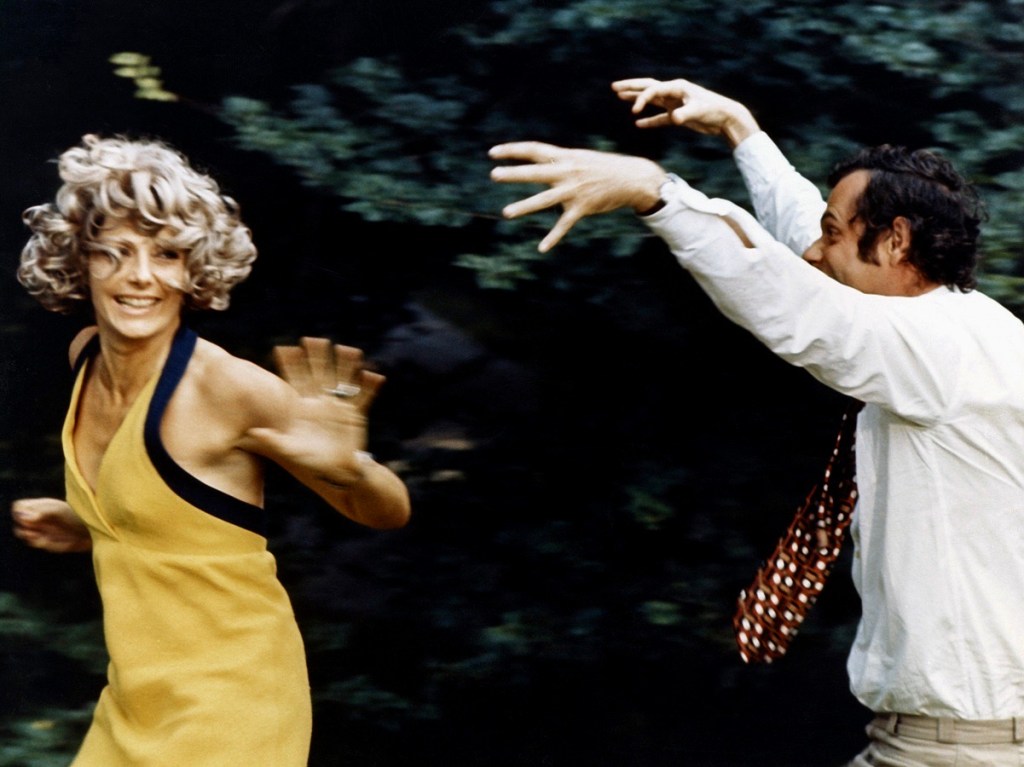Most people who work for a company, regardless of its size, have probably attended an office party for the employees at a certain point. For some, the idea of socializing with co-workers outside of work is something to avoid if possible. For others, it is an opportunity to score points with the boss and maybe advance your career. Then there are employees who simply enjoy social gatherings where an open bar and free food is theirs for the taking. All of these personality types and more – the gossip, the prude, the party animal, etc. – are on display in The Invitation (French title: L’invitation, 1973), a comedy of manners by Swiss director Claude Goretta, in which the employees of a small firm gather at a country estate for an office party given by one of the most unlikely employees to host a soiree.

Remy Placet (Michel Robin), the man giving the party, is a middle-aged bachelor who is totally devoted to his mother. We see him helping her fold laundry and tend to her garden at her bucolic residence in the midst of sprawling urban development. It is also likely that Remy’s mom packs his lunch every day as we see Remy open his neatly packed meal at his desk while pouring over a book on Botany. Meanwhile, all of his co-workers go out for their lunch break. You see, Remy is the sort of solitary, seemingly nerdy employee who is probably the butt of office jokes…if he is noticed at all. His co-workers’ perceptions of him will soon change after Remy’s mother dies unexpectedly and he is given two months off by his boss.

While he is still on leave, Remy surprises everyone by inviting his boss and co-workers to a summer party at his new home in the country. Even more unexpected is his massive estate and mansion complete with a servant hired to serve drinks and food at the affair. Remy’s sudden wealth, thanks to the sale of his late mother’s home, becomes a topic of wonder and speculation among his peers and it is their interaction with each other and Remy at the party that becomes the focus of The Invitation.

As the booze begins to flow and the gathering starts to loosen up, some employees come out of their shells or reveal different facets of their office personas while others become more entrenched in their repressed facades. While The Invitation would be right at home in a film series about office politics and the workplace, it is much more of a fascinating character study than an outright comedy like His Girl Friday (1940), The Shop Around the Corner (1940) and The Devil and Miss Jones (1941). Although The Invitation is often amusing, it also has a melancholy undertone that resonates strongly after the full circle ending, showing all of the employees back at work again, hiding behind their familiar office identities. It is as if Goretta is mirroring the words of French writer Jean-Baptiste Alphonse Karr, who said, “The more things change, the more they stay the same.”
This was the second feature film for Claude Goretta, who began his career as a writer and director of short films. He made his film debut with Le Fou aka The Madman (1970) and followed it up with two made-for-TV features but The Invitation is the movie that first won him international acclaim. It was Oscar nominated for Best Foreign Language Film (it lost to Francois Truffaut’s Day for Night) and won two major awards at the Cannes Film Festival – the International Prize and the Jury Prize (which was a tie between The Invitation and Wojciech Has’s The Hourglass Sanatorium). Oddly enough, The Invitation is almost forgotten today and Goretta is more famous for later works like The Wonderful Crook (1975) starring Gerard Depardieu, The Lacemaker (1977), which featured Isabelle Huppert in one of her first starring roles, earning her the BAFTA award for “most promising newcomer,” and La Provinciale (1980) with a cast that includes Nathalie Baye, Angela Winkler and Bruno Ganz.
The main reason to see The Invitation is to relish the lively ensemble acting of the mostly French and Swiss actors. There is an almost improvisational feel to the performances that recalls the quirky, spontaneous approach to acting that is Robert Altman’s trademark in his earliest films like MASH (1970) and later social satires such as Nashville (1975) and A Wedding (1978). Jean-Luc Bideau as the obnoxious Maurice is one of the more memorable characters. An immature prankster and skirt chaser, Maurice is the self-appointed “life of the party” but his increasingly buffoonish behavior and attitudes about money and privilege reveal his ultimate pettiness. Jean Champion as the uptight and judgmental Lamel, the assistant office manager, is also impressive in the way he registers a simmering anger and resentment at Remy’s good fortune. Neige Dolsky also stands out in her scenes as Emma, a shy, middle-aged co-worker who becomes animated after a few drinks and starts dancing and then implores everyone to play a charade game called “What’s My Profession?”
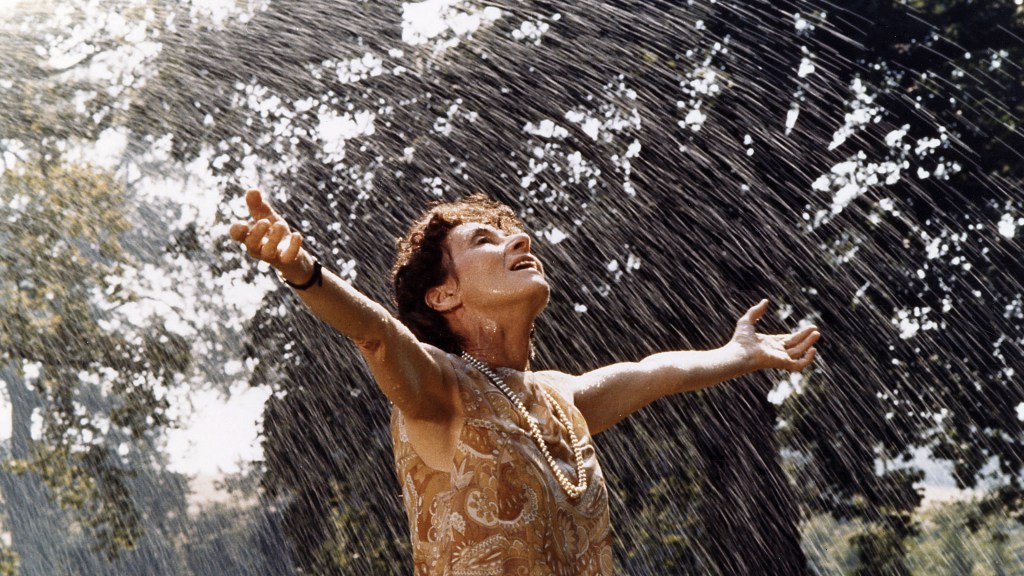
The most sympathetic figure is undoubtedly Remy, who, as played by Michel Robin, is without pretense and genuinely kind-hearted if naïve and a little foolish. In one of the film’s most touching moments, he gives a speech to his guests, saying, “Ever since my mother’s death and my long absence, I realize how important you are in my life. For twenty years, I participated in this little collective, and you, one could say, became like a second family to me. Now after overcoming my troubles, I am glad to find myself back in your midst again, in a sphere of friendship, mutual understanding, and…joviality.” Despite his sincerity, his speech does not move everyone or generate an easy-going harmony as witnessed by Lamel’s eventual outburst at an uninhibited striptease by Aline (Cecile Vassort). In fact, it is Lamel who brings the party to an abrupt close after knocking his host unconscious in a fit of anger.
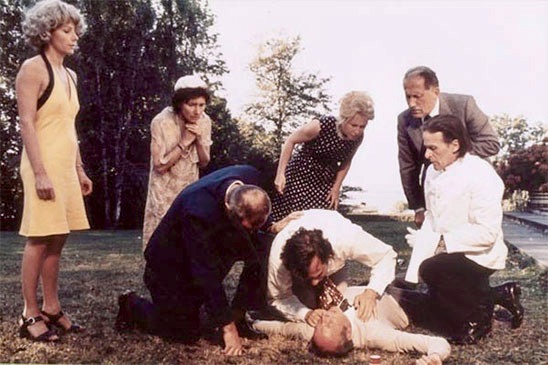
The only character who remains aloof from the raucous and chaotic deconstruction of the party is Emile (Francois Simon, the son of French actor Michel Simon), the hired bartender/servant. More of an observer than a participant, Emile is often inscrutable and a bit of an enigma. It is only at the end of The Invitation that he is revealed to be someone who exists outside of any class or culture – a free-spirited itinerant bartender who has traveled around the world. You can tell by his knowing gaze that he has seen it all before and the easiest thing to do is just keep the drinks coming, regardless of their effect. Simon was a favorite actor of Goretta and played the lead role in the director’s feature film debut Le Fou but also appeared in several other Goretta films such as The Wedding Day (1977) and The Roads of Exile (1978).

When The Invitation was first released in 1973, most critics praised the film and a telling example of its appeal is reflected in this review excerpt by Geoff Andrew of TimeOut magazine: “…what distinguishes the film is its acute observation, and the way it gently scrapes away the stereotypes – office lecher, buffoon, nymphet, henpecked husband, etc – to reveal more complex figures all locked in private worlds of hope, loneliness, and despair. The film has aptly been compared to the work of Renoir, not only for its narrative similarity to La Règle du Jeu, but also because Goretta’s tender yet unsentimental generosity towards his characters is akin to the French master’s dictum that ‘everybody has his reasons’.”

There were some dissenters of course. Stanley Kauffmann of The New Republic wrote, “Nothing is wrong with this film except that not enough is right with it.” And Ken Eisler of Movietone News called it a “rather slow-moving Franco-Swiss movie” that hovered “on the edge of boredom for close to an hour.” He concluded by saying, “Goretta certainly isn’t, critics notwithstanding, another Renoir; and his work here is neither so joyously insightful as, say, Ivan Passer’s nor as funny as Tati’s.” True, The Invitation isn’t on the same plane as The Rules of the Games or other Renoir masterpieces but if you aren’t distracted by the bad hair, dated fashions and gender stereotypes that are typical of some movies in the early seventies, you may find yourself entertained and even touched by Goretta’s exploration of people’s behavior in and out of their workplace milieu.
The Invitation was originally released in the U.S. on VHS by Homevision in 2000 but it has yet to be released domestically on DVD or Blu-ray. This seems like an obvious pick for a future restoration by The Criterion Collection and it is quite surprising that currently none of Goretta’s better known films like The Lacemaker are available in any format. However, you might be able to stream The Invitation from the Cave of Forgotten Films website, although their titles are sometimes withdrawn due to copyright issues.
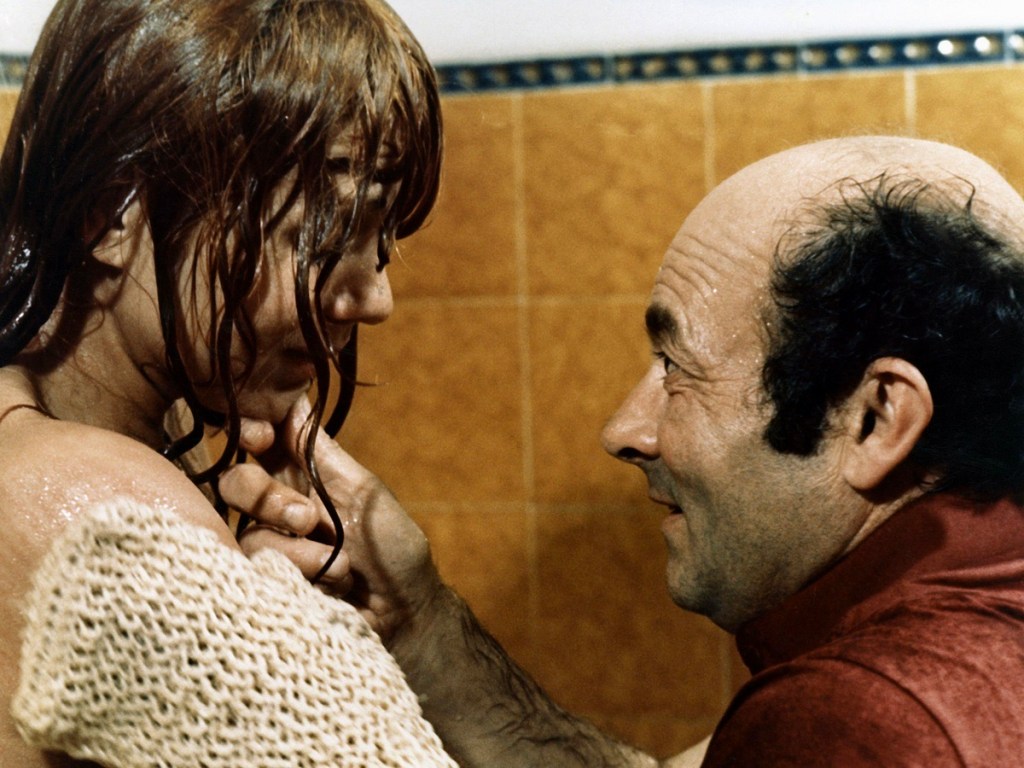
Other links of interest:
http://www.frenchfilms.org/review/l-invitation-1973.html
https://www.theguardian.com/film/2019/feb/21/claude-goretta-obituary


